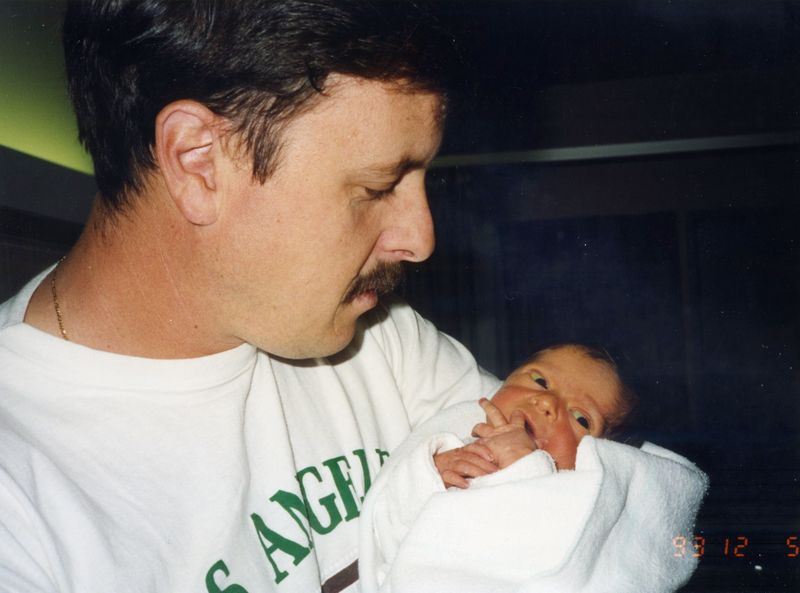Ever noticed how the air feels different when your adult kid starts cancelling Sunday dinners and your texts get the ol’ “read” but not the reply? Welcome to the club. There’s no secret handshake, but there is a secret: you are not alone, and this isn’t the end of the story.
Sometimes, when adult children put a little space between you, it’s not about rejection—it’s about their evolution—and yours. This isn’t your typical advice list. Consider it a heart-to-heart, laced with a little self-deprecation, a dash of real talk, and just enough humor to keep you from spiraling while you figure out your next steps.
Here are 17 clues—each with their own personality—on what to do when that parental closeness turns into a long-distance relay.
1. Stop Playing Detective (Retire the Magnifying Glass)
If you find yourself scrolling back through text threads searching for the exact moment the conversation got weird, you’re not alone. It’s tempting to channel your inner Sherlock Holmes—minus the hat and pipe—when you sense your adult kid drifting. But sometimes the answer isn’t hidden in the emoji choices or the sudden switch from “love you” to “take care.”
Let’s face it: reading between the lines only breeds anxiety and false narratives. Instead of looking for hidden meaning in every period and pause, try to take things at face value. Maybe your child is just busy, or maybe their silence is about them, not you.
The less you scrutinize, the more you can relax into whatever comes next—and trust that if something needs addressing, it’ll come up. Liberation starts when you swap the magnifying glass for a comfy chair and a cup of tea. Besides, nobody ever solved a mystery by obsessing over ellipses.
2. Embrace the Weirdness of Silence
You know that quiet that settles in when your phone doesn’t buzz for days? It’s awkward, sure. But what if, instead of filling it with dread or desperate voicemails, you leaned into it? Sometimes, silence is just silence—it doesn’t always mean disaster is brewing.
The space your adult child is creating could be a sign they’re learning to handle life on their own. Or maybe they need a breather (don’t we all?). Allow the silence to be a neutral zone rather than an emotional minefield. When you stop racing to fill every gap with noise or reassurance, you give both yourself and your child a little room to breathe.
Sometimes the most profound connections happen in the quiet, anyway. Reflect on how much you’ve grown since you were their age—and remember, awkward silences can be strangely comforting once you stop fighting them.
3. Ditch the Guilt Trip Tickets
Confession time: guilt trips are exhausting for everyone, especially if they only travel in circles. If you’re tempted to remind your kids how much you sacrificed, or how often you changed their diapers (with graphic detail), pause and take a breath.
Guilt might have gotten you through toddler tantrums, but it won’t rebuild adult bridges. This is your moment to set down the burden of “shoulds.” Instead, focus on honest conversations—one where you own your feelings without assigning blame.
It’s liberating to let go of the need to control anyone’s emotional weather. Your adult child won’t feel smothered, and you’ll feel lighter for not carrying those imaginary tickets around. Who knew that freedom could taste so much like fresh-brewed coffee in the morning?
4. Take a Break From the Fix-It Mode
Once upon a time, you could solve problems with a Band-Aid and a snack. Now, your adult child’s issues require more than Neosporin and a pep talk. It’s tough to resist the urge to leap into fix-it mode, offering advice or solutions before your kid even finishes their sentence.
But here’s the twist: sometimes, the best support is no support at all—at least not in the way you’re used to.
Try asking what they need instead of assuming you know. Maybe they just want to vent or hear you say, “That stinks.” You’ll be surprised how freeing it feels to put down the toolbox. Growth looks a lot like getting comfortable with not having all the answers.
5. Master the Art of the “No Agenda” Check-In
Ever send a text so neutral, so devoid of hidden questions, that even a robot would feel at ease? That’s the magic of the “no agenda” check-in. The simple “Hey, hope you’re good”—without a sneaky “call me when you can”—can be more inviting than any heart-to-heart you’ve ever planned.
When you remove the expectation of a reply (and resist the urge to track the read receipt), you create safe space for reconnection on their terms. It’s a small, almost radical act of trust.
And who knows? You might get a reply when you least expect it, just because you didn’t push. Sometimes love speaks loudest in the softest, most casual “hello.”
6. Celebrate Their Independence—Even If It Hurts a Little
Remember the first time your kid tied their own shoes? Now, they’re lacing up for bigger things—new jobs, apartments, maybe even other continents. It’s bittersweet, sure. But celebrating their independence (even if it stings) is a quiet act of courage on your part.
Send them a genuine “way to go,” even if your stomach does a backflip. Letting go doesn’t mean you’re out of their lives; it just means you trust them enough to find their way. Your pride in their autonomy can be the invisible hand supporting them from afar.
And don’t forget: your own life gets a little more spacious, too. There’s a quiet liberation in knowing you raised someone who can fly solo.
7. Redefine Your Own Boundaries
It’s boundary time—but not the rigid, “no trespassing” variety. Think of it as drawing a fresh chalk line that works for both of you. Your adult child’s distance can be an invitation to reassess where your own limits and needs begin.
What do you want from this new chapter? Maybe less late-night worrying and more time rediscovering old hobbies or friendships.
Boundaries are less about keeping others out and more about keeping yourself whole. The more clearly you define your space, the less likely you are to feel lost when they pull away. Besides, chalk lines can always be redrawn with a little rain and self-reflection.
8. Get Curious About Your Own Life (Again)
When was the last time you did something just for the thrill of it? If your adult kid’s distance leaves a void, that’s not emptiness—it’s opportunity. Pick up the paintbrush, dust off that travel guide, or finally master sourdough (or at least try).
Curiosity is the antidote to overthinking. Every minute you spend nurturing your own interests is a minute spent becoming more yourself, not just “someone’s parent.” It’s not selfish—it’s the ultimate act of self-care.
Rediscover the parts of you that got put on the back burner. Chances are, your child will respect—and maybe even be inspired by—your renaissance.
9. Relearn the Art of Listening (No, Really Listening)
Now’s the time to unlearn the habit of listening just to reply. What if you treated every conversation as if you had nothing to prove, no argument to win, and no wisdom to impart? Real listening is like a superpower you forgot you had.
When your child does open up, tune in with your full attention—no phones, no interruptions, just an open mind. Sometimes, the best thing you can say is nothing at all.
You’ll be amazed at what surfaces when you hold the space without judgment or quick fixes. It might even feel awkward at first, but that’s how you know you’re doing it right. Nobody ever outgrows the need to feel truly heard.
10. Let Go of the Need to “Win” Family Arguments
Family debates can make presidential campaigns look tame. When your grown child starts pulling away, old arguments may bubble up—even ones about who left dishes in the sink in 2008. But what if you let go of the scoreboard altogether?
The urge to “win” is a vestige of survival mode parenting. These days, real victory is in mutual respect, not rightness. Next time you disagree, try swapping “But I’m right!” for “Tell me more.” You’ll be surprised how much lighter the air feels.
Family peace is worth more than any argument you could win—and you may even get a rematch at Thanksgiving, if you’re lucky.
11. Stop Expecting an Annual Highlight Reel
Raise your hand if you’ve ever wanted your adult child to send quarterly updates, complete with emotional status reports and the occasional PowerPoint slide.
Modern life doesn’t come with a highlight reel—at least, not an honest one. People share what they want you to see, and sometimes, it’s less than you’d like.
Instead of chasing curated snapshots, focus on the moments you do share—messy, ordinary, or fleeting as they may be. Letting go of the annual report expectation makes room for more real, imperfect connection.
Try seeing the beauty in the everyday, even if it doesn’t make it to Instagram. Your relationship isn’t a TV show; it’s a work in progress, and that’s what makes it real.
12. Make Peace With Not Being the Hero Anymore
Once upon a time, you were the fixer, the rescuer, the one with answers. Now, your adult child has their own cape—and their own battles. It’s both humbling and a little freeing to step out of the superhero role.
You don’t have to save the day every time. In fact, your quiet support from the sidelines is more powerful than any grand gesture. There’s a distinct dignity in cheering from the stands.
You raised someone capable; now, you get to watch them fly—even if you miss the days of being the main character. Your new role might not come with a theme song, but it’s every bit as heroic.
13. Find Comfort in Shared Awkwardness
Remember trying to take a selfie with your kid, only for both of you to look like you saw a ghost? Awkwardness is a universal language—and sometimes, a bridge. Don’t dodge the weird moments. Instead, lean into them together, even if it means laughing at yourselves.
Those shared, cringey experiences are proof that you’re both human, figuring things out as you go. Awkwardness can be a sign that you’re growing, not failing. If nothing else, it’s ammunition for future family stories.
The next time an encounter goes sideways, skip the embarrassment and savor the humor. It’s the glue that keeps relationships from feeling brittle.
14. Give Yourself Permission to Grieve What’s Changed
Nostalgia hits hardest when you notice what’s missing. If you’re mourning the closeness you used to share—a kitchen full of chaos, a living room echoing with laughter—it’s okay to feel that loss. Grieving isn’t weakness; it’s a sign of just how much you’ve loved.
Allow yourself to sit with the ache instead of rushing past it. Change is hard, even when it’s right. The trick is to honor your memories without letting them chain you to the past.
There’s a strange comfort in knowing you can cherish what was and still look forward to what’s ahead. Every chapter has a little sadness—and a lot of hope.
15. Learn Their Language (Even If It’s Emojis and Memes)
Texting in all lowercase, using the crying-laughing emoji incorrectly, or sending memes you barely understand? Welcome to modern communication. It might feel like learning a new dialect, but it’s also a chance to meet your adult child where they are.
Instead of critiquing their style, get curious. Ask what a meme means or send a goofy GIF in return.
Embracing their way of connecting (even if you’re a beat behind) shows you’re willing to try. It’s less about perfection and more about effort. Who knows—you might even discover a hidden talent for emoji poetry.
16. Reclaim Your Joy (No Permission Needed)
Joy doesn’t require an audience, a reason, or even perfect timing. If your adult child’s distance leaves a gap, fill it with something that makes your soul do a little dance—literally or figuratively. Happiness is wonderfully contagious when it’s authentic.
You don’t need anyone’s approval to be delighted with your life. Sing off-key, binge-watch guilty-pleasure shows, or rediscover a forgotten favorite meal. The point is to cultivate joy for yourself, not as a strategy to lure them back.
Sometimes the best way to reconnect is to shine so brightly, your happiness becomes an open invitation.
17. Stay Open to the Unexpected—Love Has a Long Shelf Life
Just when you think the distance is permanent, life throws in a twist. Maybe it’s a random call on a Tuesday, a funny meme, or a last-minute dinner invite. Love has a knack for circling back when you least expect it—if you stay open to the possibility.
Don’t close the door on hope, even if the timeline stretches longer than you’d like. Relationships breathe, contract, and expand in unpredictable ways. By staying flexible and receptive, you keep the lines open for reconnection.
After all, love isn’t perishable—it just sometimes takes the scenic route home. Trust that your story with your child is still unfolding, even on the quiet days.


















